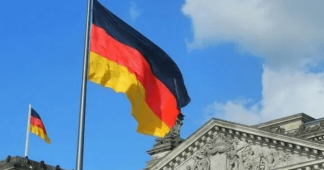May 20. 2024
Greeks are “center-left” at heart but vote for “center-right”. this is among others the result of a big survey conducted by Metron Analysis on behalf of diaNEOsis institute.
One of the survey chapters sought to see the dominant ideologies in the Greek society.
The survey “What Greeks think” was conducted via a telephone and an online poll by Metron Analysis of a representative sample of 1,103 people, in the period 31 January to 12 February 2024.
Ideology and politics
The survey opens with questions that probe the political position of the participants. The respondents are initially asked to self-position themselves ideologically, choosing the characterization that best expresses them.
In this context, “social democracy” is recorded first in reports with 20.5% and appears significantly stronger than the corresponding percentage of the previous wave in 2022 (14.1%), returning closer to the levels of 2020 (17.7%) .
On the other hand, “liberalism” is at the same levels (19.3%) and in fact remains almost completely stable over time since 2016.
Third position in respondents’ preference is “socialism” (13.8%), which although it records the highest percentage this year since 2016, it too shows a relative stability over time.
Did the Greeks therefore become more “social-democratic” in two years?
A series of a few more questions explore more aspects of the sample’s ideological positions. For example, when respondents are asked to evaluate some words related to the economy, the most popular are “evaluation” (88.9% equate it with something “good”), “competitiveness” (82.7%) and “reforms” (78.5%).
However, looking at the results of the previous waves of the large survey by DIANEOSIS a clear decline is observed in the reactions to “privatizations” (from 57.8% in 2019 to 47.2% in 2022 and 43% now) and to “banks” (32.9% from 45% in 2016).
Another related question, about the intervention of the state in the economy, appears in the survey already from its first wave in 2015 and the changes observed are also interesting there.
Fewer now believe that the state intervenes too much in the economy (“and prevents the private sector from creating wealth and jobs”): 33.4%, i.e. more than 28 points lower than in 2018. Conversely, those who say (60.9% ) that the state does not intervene enough (“and allows the private sector to act recklessly”) surpassed those who believe that the state intervenes too much in the economy for the first time since the first wave of the survey in 2015.
The picture in the question about taxation and the welfare state is similar. The answers here are divided and the preference for low taxation prevails marginally “even if there is less state care” (45.6%) versus high taxation accompanied by a “welfare state for all” (42.6%). In 2022, although the order of the options was the same, the difference between the two responses was much greater (54.4% vs. 31.5%).
“Overall, the impact of the pandemic as well as the uncertainty caused by the multiple and concurrent crises of our time,” writes the Metron Analysis report, “strengthens the demand for increased protection through a more active role of the state and public intervention.”
The third part of the sixth wave of “What the Greeks think” resulted from a telephone and online poll by Metron Analysis of a representative sample of 1,103 people, in the period 31 January to 12 February 2024.
We remind our readers that publication of articles on our site does not mean that we agree with what is written. Our policy is to publish anything which we consider of interest, so as to assist our readers in forming their opinions. Sometimes we even publish articles with which we totally disagree, since we believe it is important for our readers to be informed on as wide a spectrum of views as possible.











